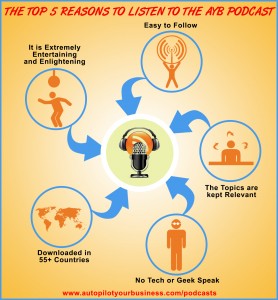Podcast: Play in new window | Download (Duration: 49:38 — 45.4MB) | Embed
Subscribe: Apple Podcasts | RSS
Thanks for joining us for podcast #34, where we interview Pinterest expert and author of the ‘Perfecting Pinterest’ course Laura Waage to get her insights on what we should all be doing to optimize our Pinterest for marketing. Laura is one of the foremost Pinterest experts worldwide and you will learn;
- Why you need to be on Pinterest
- Leveraging Pinterest for SEO
- Why you should have a Pinterest business account
Laura has spent a lot of time learning the ins and outs of Pinterest and how it can be used as a tool for online marketing. She says while many people still see it as some kind of ‘toy to pin pretty pictures to’, that is far from the truth as when used right, Pinterest is a valuable tool in your online marketing arsenal.
For those who are unsure about what Pinterest is, think of it as an online bulletin board such as what you may have in your office. You can pin posts of interest and give others permission to pin on your boards too. When followers see your pins, if they like them they can ‘repin’ them to their own Pinterest boards. Pinterest is an effective channel because as humans we tend to be very visual creatures and this allows us to pin and share great images.
Laura has yet to find an industry that can not make Pinterest work for them. Anyone with a creative marketing mind can get in there and make it a success. The examples are endless, from car manufacturers showcasing their latest models, DIY projects posted by home improvement stores to contests and campaigns that encourage entrants to share photos. Of course, Laura cautions, you need to be using Pinterest in a way that fits with your industry or niche.
One of the first things to consider for effective marketing with Pinterest is; what is your goal? Is it;
- driving sales?
- driving people to an opt-in?
- getting more followers?
Define your goal and create a Pinterest marketing plan that matches your goal. If you are unsure about what your goal should be, Laura recommends that now is a good time to get a business coach to help you through!
There has been a relatively slow uptake in brands figuring out how to use Pinterest in the right way. Now there are business accounts available in Pinterest with built-in analytics in the dashboard. This means that companies can get a better idea of the effectiveness of their marketing campaigns. Check out Laura’s article “7 Pinterest Analytics Tools to Rev Up Your Results” in Issue #5 of Online Footprint Magazine for more.
It is certainly worth it if you are doing business on Pinterest to ensure that you have a business as opposed to personal account. Perks associated with the business account include a website verification process whereby your account can be linked back to your business website. You also get access to analytics as mentioned previously.
Here are a few examples of boards you could use for your business;
- Q & A boards – great for coaches or consultants and you can include short info videos. Link back to your website!
- Articles – include a picture snippet of something from your article (e.g. the first point out of the 7 you have) and direct people to ‘click here for more’. You should then include a link that takes them back to the article.
How you name your boards is also an important strategy. You should know your keyword phrases that your business is targeting and use these in your board titles and description sections in all areas. For SEO purposes this is a good idea, also as people can search subjects by pins, boards or pinners in Pinterest.
Some of the best pins from a business building perspective that Laura has seen include;
- For sales – very clear beautiful images that include the price tag – including the price tag increases the repin and click through rates.
- For marketers – infographics and ‘instructographics’ do well. E.g. a make-up artist might show 4 steps to beautiful eyeliner, including 4 photos as an instructographic. Laura recommends that you always watermark your own infographics or instructographics with your URL to protect the integrity of your own material. Some great tools to create these include Picmonkey (particularly for instructographics as it creates collages) and Pixlr to create and edit basically any type of image you like.
If you are a blogger and want to help make Pinterest very relevant to your business, make sure that all of your posts include an image. When you add this image, make sure that you include your keyword phrase in the ‘alt text’ field. Set the link within the image as the blog post itself so that when you pin the image to Pinterest, it will link directly to that blog post.
Recommended fiverr gig of the week (from Laura): Go and do a general search for ‘infographics’ and get your own infographic created for $5! Remember to include your URL to be watermarked at the top and bottom.
Here is an example of a fiverr infographic we had created for our podcasts;
For more valuable info on Pinterest from Laura, check out the full podcast replay above or on iTunes. We recommend that you follow her on Pinterest (search Laura Waage), to see how it’s done! She can also be found at PerfectingPinterest.com.
